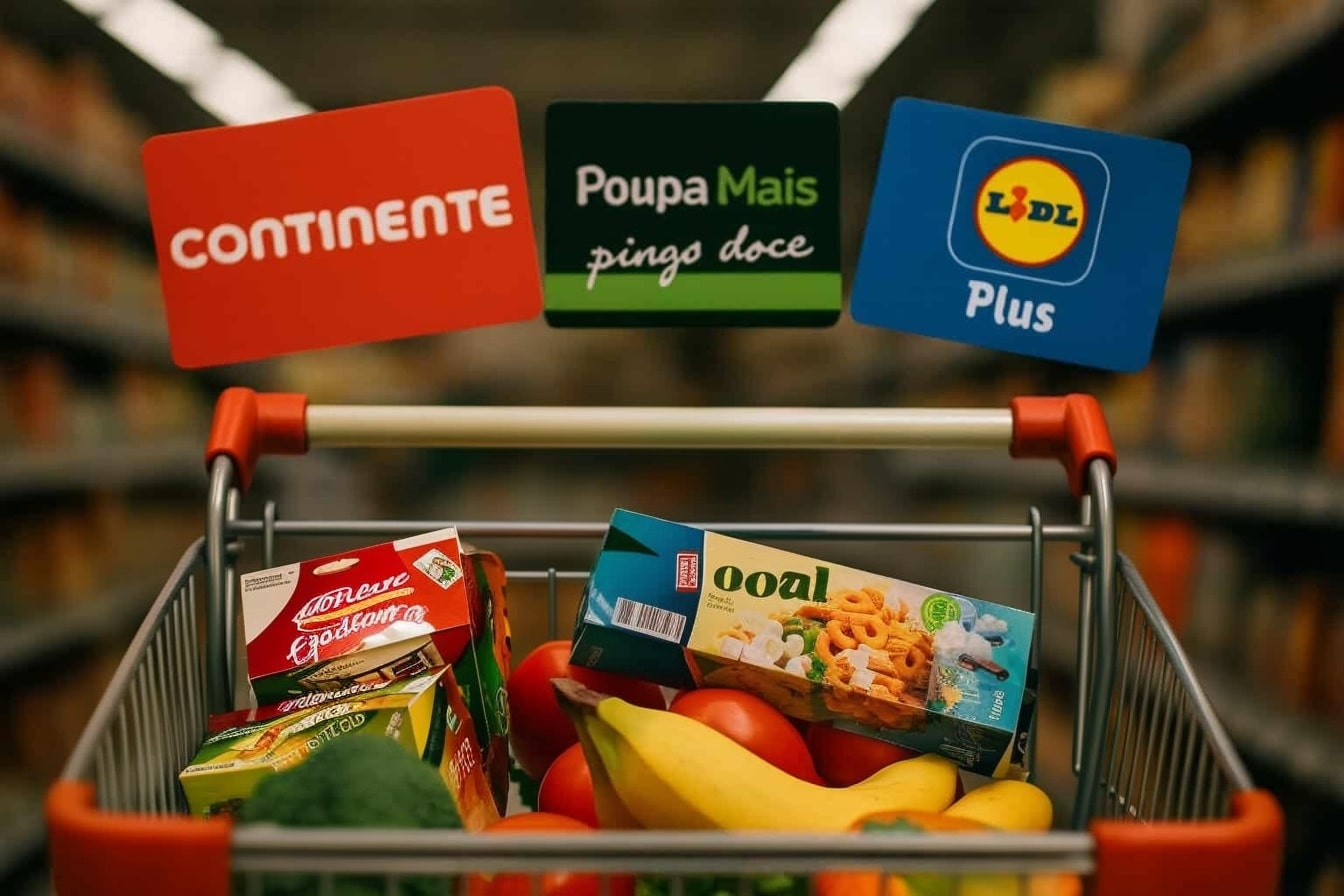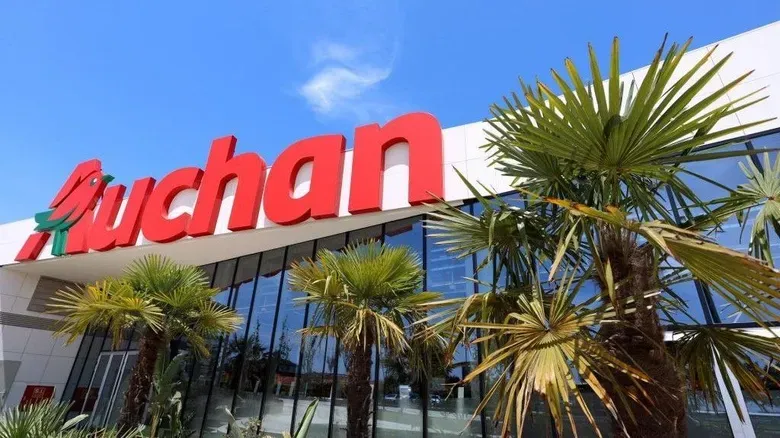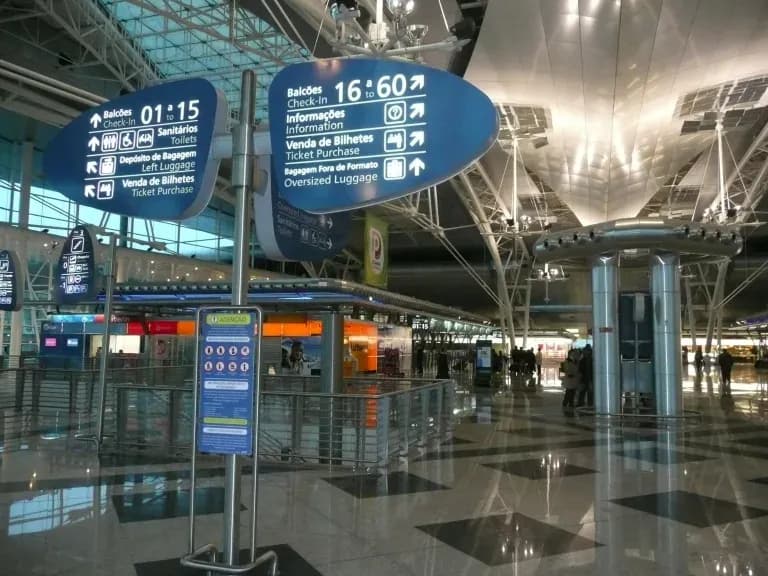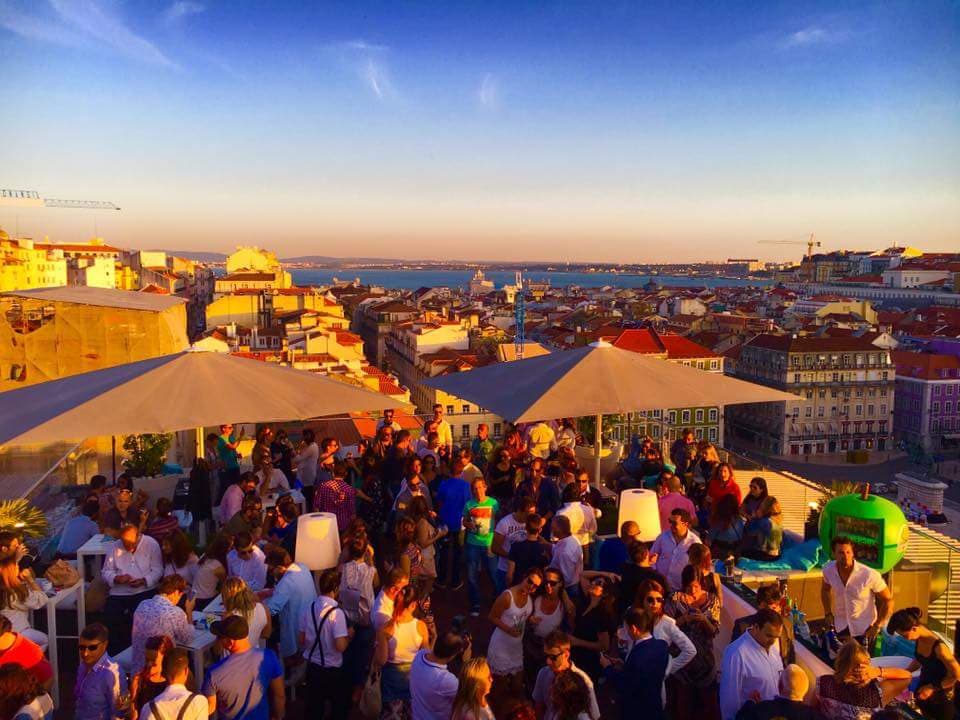
Among all these stores, how do you know where to start ? Portugal has two major national supermarket chains: Pingo Doce and Continente, both long-established brands. These supermarkets are where you’ll find everything you need for your weekly shopping, a wide variety of Portuguese brands and some popular international products. For many expats and tourists, understanding how these major local chains work is a real gateway into Portuguese life. Let’s explore the world of Portuguese supermarkets! (Yes, because doing the groceries here is almost cultural anthropology.)
A Brief History, From Markets to Superstores
For a long time (and still in some parts of Portugal), daily life revolved around traditional markets, known as “feiras”. Every city and village had its own market hall where people would buy fresh vegetables, fruit, fish, and meat. Today, these markets remain vibrant and are an excellent way to discover local gastronomy and specialties. You’ll also get unsolicited cooking advice from the stall owner, which is part of the charm.
However, from the 1980s onwards (especially the 1990s), large supermarkets started appearing and changed Portuguese shopping habits. Among the pioneering chains was Continente, founded in 1985, which became Portugal’s first major supermarket chain. Shortly after, Pingo Doce experienced rapid growth, establishing itself as a serious competitor.
Alongside these national giants, international chains such as Auchan (formerly Jumbo), Intermarché, Leclerc, Aldi, and Lidl gradually entered the market. Today, Portuguese people balance between traditional markets, particularly for fresh produce, and modern supermarkets for branded products, blending tradition and convenience. In other words: tomatoes from Senhor Joaquim at the feira, shampoo and laundry detergent from the hypermarket. Balance achieved.
Main Supermarket Chains in Portugal
Pingo Doce
Arguably the most iconic supermarket chain in Portugal, Pingo Doce belongs to the Jerónimo Martins group, a historic player in Portuguese retail. These stores, ranging from medium-sized supermarkets to hypermarkets, are found in all major cities and many smaller towns.
What makes Pingo Doce popular is its competitive pricing and frequent promotions, particularly advantageous for loyalty card holders. It also offers a wide selection of Portuguese products. One standout feature is the in-store ready-to-eat meals sold at the Comida Fresca counter : grilled dishes, soups, and salads, perfect for a quick lunch or a dinner without cooking. Locals genuinely do this on a weeknight; it’s not “tourist cute”, it’s survival. The roasted chicken has its own fan club.
Continente
Another major chain is Continente, originally known as Modelo, founded in Porto in the 1980s. Continente has established itself as a benchmark in retail, with large hypermarkets as well as smaller formats, like Continente Bom Dia.
These stores offer a broad range of products: food, clothing under their own brand, home appliances, and even décor items. Like Pingo Doce, Continente invests in customer loyalty with its Continente card, offering discounts and personalized promotions, similar to Carrefour in France. You’ll notice people at checkout proudly scanning that red card like a boarding pass, because sometimes the discount is the difference between “reasonable shop” and “how did groceries cost this much?”.
Auchan
Previously known as Jumbo, Auchan has modernised its image in Portugal. Its hypermarkets are spacious, with a wide variety of products, including organic and international options. Many Auchan stores are part of shopping centres, making a supermarket visit a full shopping experience. For example, Mar Shopping in Matosinhos near Porto combines Auchan with other shops, restaurants, and entertainment. Yes, you can buy olive oil, have lunch, get your glasses fixed, and come home with a new sofa, all in one go. Efficiency, Portuguese edition.

Lidl and Aldi
The German chains have firmly established themselves in Portugal. Lidl in particular has grown popular with weekly promotions and low prices. Alongside familiar international products, Lidl has adapted well to the Portuguese market by offering local specialities like bacalhau (salted cod) and fresh pastéis de nata. If you’ve never seen people queue for still-warm custard tarts in a discount supermarket at 9 a.m., welcome.
Aldi also targets cost-conscious shoppers and provides a mix of imported and Portuguese products, appealing to both locals and expats. It’s a favourite for “I just came in for milk and somehow left with hummus, candles, and folding chairs.”
Leclerc, Intermarché, and MiniPreço
Leclerc and Intermarché, similar to their operations in France, are mostly present in medium-sized towns and offer French products. Prices are competitive, and proximity is key.
MiniPreço, on the other hand, is a smaller neighbourhood supermarket, often found in residential areas. It’s the place you go at 21:45 because you forgot olive oil and bread, and yes, they will have both.
Mercadona
The Spanish chain Mercadona has expanded into Portugal in recent years and continues to grow, with 64 stores in 2025. It stands out for its customer-friendly layout, including a small cafeteria area with coffee machines, utensils, and seating for on-site consumption. Most products are Mercadona’s own brand, mainly sourced from Spain. There’s also a certain calm to Mercadona that regulars mention almost like a lifestyle choice: “I don’t shop, I go to Mercadona.”
Changes in Portuguese Shopping Habits
In recent years, Portuguese shopping habits have evolved considerably. People increasingly seek fresh, organic, and local products, reflecting a growing awareness of healthy eating. While traditional markets remain popular, modern supermarkets now offer gourmet items, international foods, and ready meals, catering to busy lifestyles. This is very real: soup to go is basically a national institution.
Convenience has become a priority : click & collect services, home deliveries, and supermarket apps are now widespread. Despite these innovations, Portuguese consumers maintain strong ties to tradition, especially regarding iconic products like bacalhau, olive oil, and regional wines. This balance demonstrates how supermarkets in Portugal reflect the country’s culinary culture and lifestyle. You can add quinoa to your basket, yes, but you’re still leaving with chouriço. Nobody leaves without chouriço.
Shopping Tips for Adapting to Portuguese Supermarkets
If you want to fit into Portuguese shopping habits, a few tips can make the experience smoother !
Use supermarket apps : Pingo Doce, Continente, and Auchan offer apps for checking promotions, creating shopping lists, and ordering for home delivery or click & collect. Locals really do chase promotions, it’s almost a sport.
Take advantage of loyalty cards : cards like Continente or Pingo Doce’s can significantly reduce your bill. You’ll understand this fully the first time you see “-14,73€” at the bottom of a receipt and feel like you’ve just beaten the system.
Don’t neglect local markets : even with the convenience of supermarkets, traditional markets often provide fresher produce at competitive prices, especially for seasonal fruits and vegetables. Plus, you get stories with your tomatoes. Try getting that from a barcode.
Shop at a relaxed pace : Many supermarkets in larger cities stay open until 23:00, allowing for a stress-free shopping experience without long queues. Late-evening grocery shopping in Portugal is calm, almost therapeutic, fluorescent lighting and Fado-free.
Supermarkets as a Window into Portuguese Culture
Shopping in Portugal is more than just buying groceries; it’s a glimpse into Portuguese culture. You’ll see the nation’s passion for bacalhau, displayed in countless variations (did you know there are over 365 cod recipes ?). Wine and olive oil are abundant and reasonably priced, highlighting their central role in Portuguese life. And yes, people genuinely debate olive oil brands the way others debate football clubs.
Whether at Pingo Doce, Continente, or Intermarché, a trip to the supermarket is an immersion into daily life. Observing ready meals, local produce, and household staples provides insight into Portuguese traditions and lifestyle.
Supermarkets here are not merely functional spaces ; they are cultural hubs where gastronomy, daily routines, and community habits converge. The aisles reflect centuries of culinary tradition, modern convenience, and the Portuguese knack for balancing practicality with enjoyment. In short, doing the groceries in Portugal is not just shopping. It’s fieldwork. Bring a basket, and curiosity.
Share this article
Suggested articles

Lost in Translation, Portuguese-English False Friends You Should Know
Learning Portuguese as an English speaker (or the other way around) can be both fascinating and occasionally… confusing. The two languages share a fair number of Latin roots, which makes many words look deceptively similar.

The Must-Have Apps for Living in Portugal
Moving to or living in Portugal may sound simple on paper… but once you get there, you quickly realise a few apps can make life so much easier !

How to Avoid Tourist Scams in Portugal, Practical Tips and Local Anecdotes
Every year, millions of visitors discover Lisbon, Porto, the Algarve or even the Azores. Portugal is a warm, affordable country, famous for the kindness of its people. But even in the land of pastéis de nata, a few clever tricksters lurk around. Yes, just like in any popular destination, a few little scams still wander between the cobblestones.

Tips to Pay Less for Your Flight to Portugal
Booking a flight to Portugal is often the start of a guaranteed escape, the kind that smells like sea air and grilled sardines. Landing in Lisbon, wandering through the maze-like Alfama, maybe sneaking in a quick dip in Cascais… pure bliss. But before you can sip a chilled glass of vinho verde or bite into that perfect pastel de nata, you’ll need to score the golden ticket: a flight that doesn’t empty your wallet.

Practical Tips for Settling in Portugal
Settling in Portugal isn’t just about learning a few words of Portuguese or discovering the Algarve’s beaches… It’s primarily a human adventure, a meeting of two cultures, two ways of life, and two perspectives on the world! Portugal captivates with its gentleness, authenticity, and way of life, focused on simplicity and what really matters. However, to feel truly at home, it’s essential to understand the locals, their habits, and their unique relationship with time, which can be very different from what we’re used to. Here, we reveal the keys to successful integration, whether you’re staying for a few months or for life.

Portuguese Timings, Adapting to the Local Pace of Life
Are you familiar with the Portuguese rhythm of life ? Meal times, work hours, social outings, and even shop schedules follow a pattern quite different from what you might be used to in Northern Europe. Adapting can be surprising, but it’s also a wonderful way to understand local culture and experience a more authentic side of Portugal!


